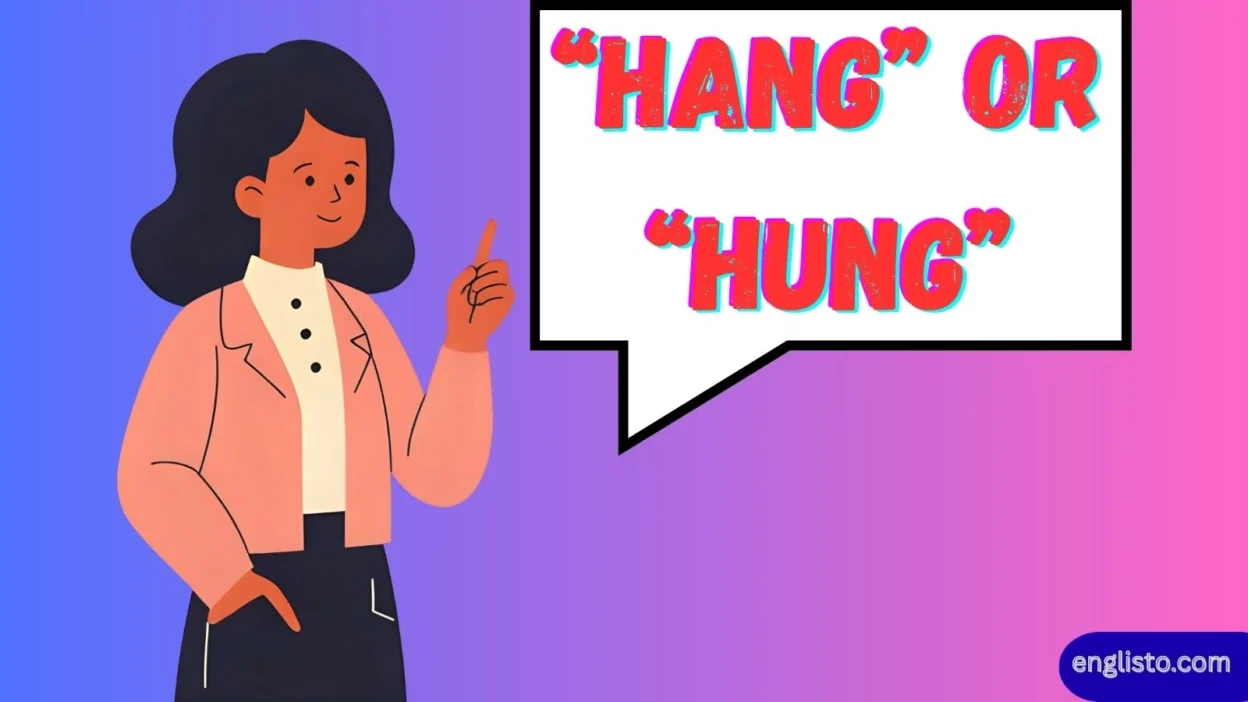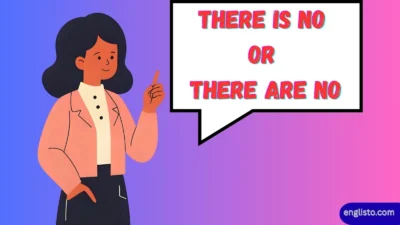Language learners and even native speakers often pause when deciding whether to use “hang” or “hung”—and with good reason. English verbs can be tricky, especially when irregular forms come into play. Add in the historical and legal baggage of the word hang, and suddenly a simple sentence like “He hung the picture” or “The man was hanged at dawn” feels far more complex than expected.
This guide unpacks the grammar, history, and nuances of hang, hung, and hanged. By the end, you’ll not only know the rules but also feel confident using them in speech and writing.
Understanding the Verb “Hang”
At its core, hang means to suspend something from above so that it dangles freely beneath. Depending on context, it can describe:
- Placing objects on walls (She hung the painting above the fireplace).
- Suspending clothes (The shirts are hanging on the clothesline).
- Punishing criminals in history (The prisoner was hanged for treason).
- Casual socializing (We hung out at my friend’s house).
The complexity arises because the past tense of hang can be either hung or hanged, each reserved for different situations.
Read More: Sure vs Surely: Understanding the Key Differences in Meaning and Usage
The Rule of Thumb: Hung vs. Hanged
Here’s the golden rule:
- Hung → used for objects and everyday actions.
- Hanged → used for people when referring to execution or death by hanging.
| Base Form | Past Tense | Past Participle | Context of Use | Example Sentence |
| Hang | Hung | Hung | Objects, items, casual actions | She hung the curtains in the hallway. |
| Hang | Hanged | Hanged | Execution, death, capital punishment | The traitor was hanged for his crimes. |
This split makes hang unique among irregular verbs because it creates different past tense forms depending on meaning, not just grammatical rules.
Everyday Usage of “Hung”
Most of the time, you’ll use hung.
Examples:
- He hung his coat on the hook by the door.
- The decorations hung from the ceiling at the party.
- We hung out after school, playing video games.
- A chandelier hung above the dining table.
Notice how in each example, no life-or-death context is involved. “Hung” fits whenever we’re talking about objects, clothing, lights, pictures, or casual idiomatic phrases.
Historical and Legal Usage of “Hanged”
Hanged belongs almost exclusively to the grim world of execution.
From the Middle Ages to the 19th century, hanging was the most common form of capital punishment for crimes like theft, treason, and piracy. Records show that:
- Captain Kidd, the infamous pirate, was hanged in 1701 at Execution Dock, London. His body was later gibbeted (publicly displayed) along the River Thames to deter others.
- In England between the 13th and 18th centuries, countless criminals and traitors were sentenced to be hanged, drawn, and quartered.
- In 1896, executions still drew large crowds, serving as both warning and spectacle.
Modern Example:
- The criminal was hanged at dawn.
Though many countries have abolished the death penalty, the word hanged survives in literature, history, and legal discussions.
Why People Confuse “Hanged” and “Hung”
The confusion comes from two main reasons:
- Irregular Verb Patterns
Most verbs follow one simple rule: add -ed (work → worked). But hang behaves irregularly, like cling/clung or swing/swung. Learners assume hung always works. - Visual Similarity
Hung and hanged look almost identical. Without knowing the historical/legal distinction, people use them interchangeably. - Dialects and Colloquialism
In casual speech, even native speakers sometimes misuse hung. For example: “He was hung for his crimes”—though technically incorrect—does slip into everyday conversation.
Idioms and Expressions with “Hang”
English is rich in idioms using hang. Here are some favorites:
- Hang out → to spend time casually (We hung out on Friday night at my mother’s house).
- Hang on → to wait or hold tightly (Hang on! The rollercoaster is starting!).
- Hang in there → encouragement to endure tough times (Hang in there—you’ll get through this).
- Leave someone hanging → to keep someone waiting or uncertain.
- By a thread / hanging by a thread → describing a fragile or risky situation.
Notice how these idioms always use hung in the past tense, never hanged.
Examples in Literature and History
- Heinrich Heine once wrote: “We should forgive our enemies, but not before they are hanged.”
- Leonardo da Vinci studied the physics of suspension, noting how weights hung from ropes and pulleys.
- During the Salem Witch Trials, accused women were famously hanged, not burned as often misremembered.
- Grover Cleveland, former U.S. president, once served as a sheriff and personally supervised executions—ordering criminals to be hanged.
These examples highlight how the word reflects both mundane daily actions and profound human history.
Grammar Deep Dive: Verb Conjugation of “Hang”
To make this clearer, here’s a breakdown of forms:
| Tense | Singular Example | Plural Example |
| Present Simple | I hang my coat. | They hang their coats. |
| Past Simple (objects) | She hung the painting. | We hung the curtains. |
| Past Simple (execution) | He was hanged for treason. | The traitors were hanged at dawn. |
| Present Continuous | I am hanging the laundry. | They are hanging the lights. |
| Past Continuous | I was hanging clothes. | They were hanging decorations. |
| Present Perfect | I have hung the picture. | They have hung the banners. |
| Past Perfect (execution) | He had been hanged. | Several criminals had been hanged. |
Synonyms and Related Words
Sometimes, instead of wrestling with hang/hung/hanged, you can use synonyms.
| Meaning | Synonyms | Example |
| Suspend, dangle | dangle, swing, drape, sling | The rope dangled from the tree. |
| Display on a wall | mount, pin, tack, fix | She mounted the award certificate in a frame. |
| Execution | execute, strangle, suffocate (context-specific) | The prisoner was executed at dawn. |
| Socialize | meet, gather, chill, spend time | We gathered at his place after school. |
Differences Summarized
- Hung → everyday objects, clothes, pictures, decorations, idioms.
- Hanged → execution, death, capital punishment, historical/legal contexts.
Quick Takeaway:
If it’s about objects or fun, use hung.
If it’s about crime or punishment, use hanged.
Quick Recap
- Hang is an irregular verb with two distinct past tense forms.
- Hung applies to things like paintings, clothes, curtains, chandeliers, and idioms.
- Hanged applies to humans in the specific context of execution.
- Context is king—meaning determines the correct choice.
FAQs
Q1: Is “He was hung” ever correct when talking about execution?
No. The correct form is hanged. Saying hung in this context is a common mistake.
Q2: Can I say “I hung out with my friends yesterday”?
Yes. In idiomatic phrases like hang out, the past tense is always hung.
Q3: Why does English have two past tense forms for the same verb?
Because over centuries, the legal/historical use of hanging as execution preserved hanged, while daily speech naturally evolved to hung.
Q4: Is “hung” ever wrong when talking about objects?
No. Hung is always correct for suspending non-living things.
Q5: How can I remember the difference quickly?
Use the rhyme:
- Pictures are hung, people are hanged.
Conclusion
The choice between hung and hanged isn’t just a matter of grammar—it reflects centuries of history, law, and culture. While hung handles nearly every casual or everyday context, hanged preserves its somber role in describing execution.
Mastering this distinction not only makes your English more precise but also connects you with the deep historical weight words can carry. Next time you hang a picture, hang out with friends, or read about a criminal being hanged centuries ago, you’ll understand why the language evolved this way—and you’ll be able to use it with confidence.



